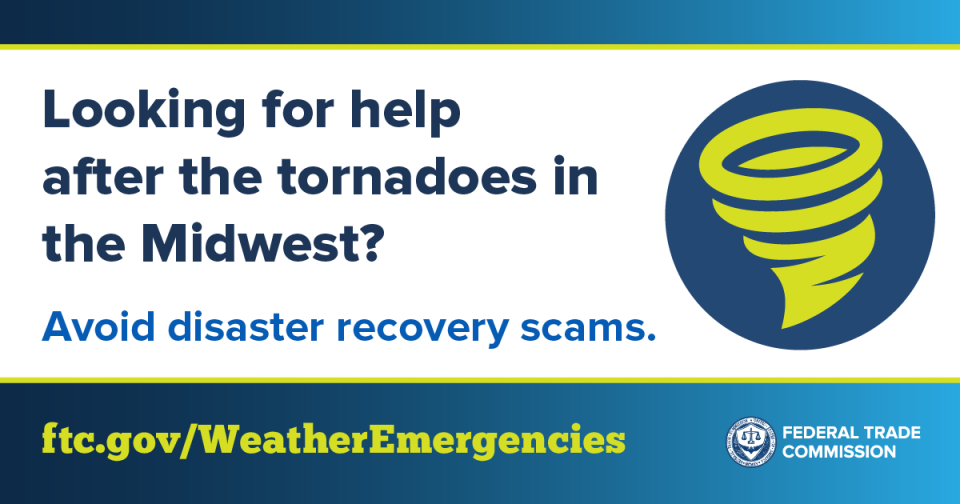Just as people in Nebraska, Iowa, Oklahoma, and other Midwestern states are reeling from the catastrophic damage caused by tornadoes and other severe weather, scammers are rolling in. They use all kinds of stories to try to trick not just those doing their best to recover, but also anyone who tries to help. The best way to steer clear of these disaster-chasing scammers? Know what their tactics have in common.
A great place to help yourself and others spot and avoid scams after a disaster is ftc.gov/WeatherEmergencies. If you’re pressed for time as you focus on recovery, remember this:
- FEMA and the Small Business Administration don’t charge application fees. Only scammers say they’re a government official and demand money to help you qualify for FEMA funds or government grant. The best place to get information is fema.gov or sba.gov if you are a business owner.
- Scammers offer help but demand you pay for clean-up or repairs upfront. Never pay in full upfront. And don’t hire anyone who refuses to give you copies of their license and insurance, and a contract in writing.
If you’re not directly affected but want to donate to help people in need, take time to research places to donate. That way, you make sure your money goes to the people in need, not charity scammers.
Suspect a weather-related scam? Tell the FTC at ReportFraud.ftc.gov.


I want to let you. How I am so impressed that FTC has so much important information for consumers when they need with real life problems. Thank you I appreciate the opportunity for the help available.